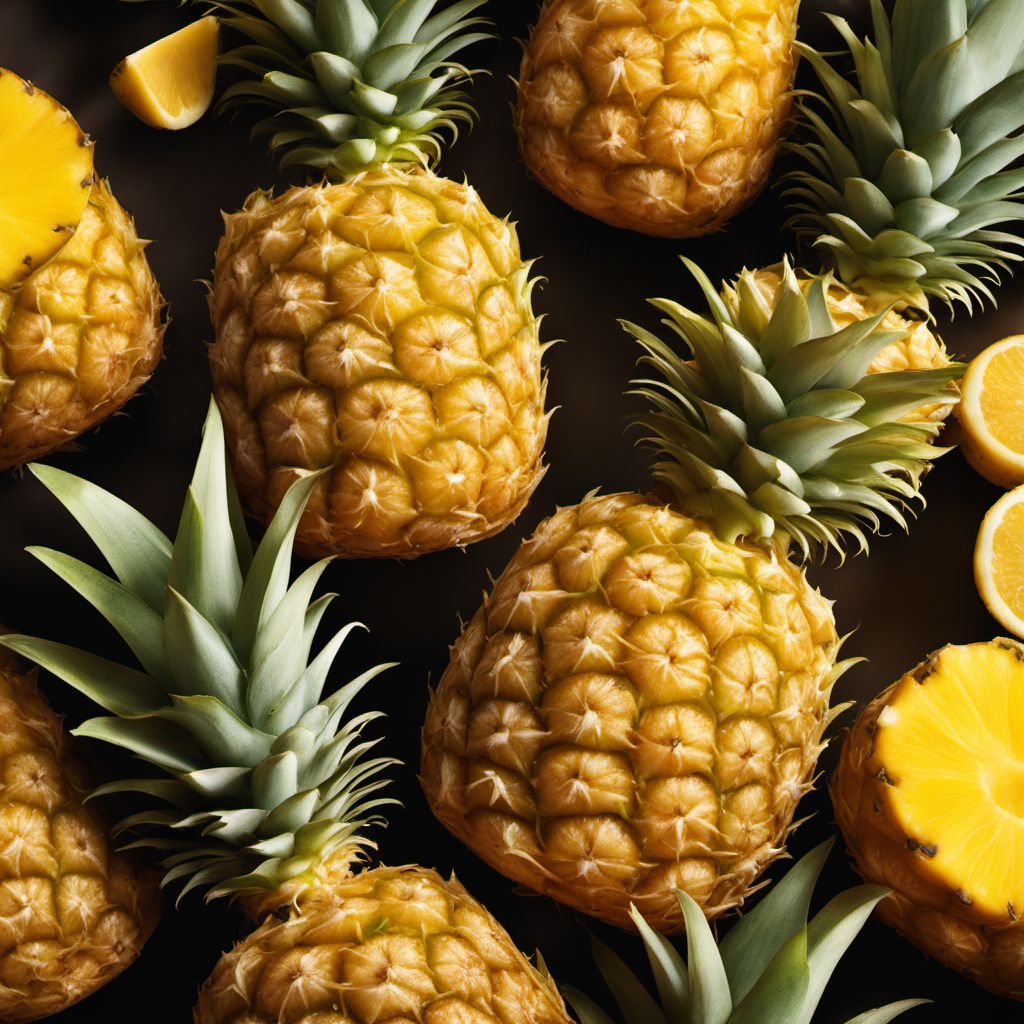
Ingredient
Nectar, pineapple
"Tropical Delight: Exploring the Vibrant World of Pineapple Nectar"
Pineapple nectar is a vibrant and golden liquid extracted from ripe pineapples. It possesses a luscious and smooth texture with a sweet and tangy taste that is reminiscent of the tropical fruit itself. The nectar is often slightly thick and has a rich aroma that instantly transports you to a sunny beach paradise. Its appearance is captivating, with its bright yellow color and a slight cloudiness due to the natural pulp of the fruit.
Origins and history
Pineapples are native to South America, particularly Brazil and Paraguay, and have a rich history dating back centuries. They were highly valued by indigenous tribes for their medicinal properties and were later introduced to Europe by Christopher Columbus. Pineapple nectar gained popularity in the 20th century as a refreshing beverage and ingredient in cocktails, desserts, and sauces.
Nutritional information
Pineapple nectar is a good source of vitamin C, manganese, and bromelain, an enzyme known for its anti-inflammatory properties. It is also relatively low in calories, with approximately 60 calories per 8-ounce serving.
Allergens
Pineapple nectar may cause allergic reactions in individuals with a known allergy to pineapples.
How to select
When selecting pineapple nectar, look for brands that use 100% pure pineapple juice without any added sugars or artificial flavors. Check the label for the absence of preservatives and opt for nectars that are made from ripe, high-quality pineapples for the best flavor.
Storage recommendations
Pineapple nectar should be stored in a tightly sealed container in the refrigerator to maintain its freshness and quality. It is best consumed within 3-4 days of opening.
How to produce
Pineapple nectar can be produced by extracting the juice from ripe pineapples using a juicer or blender. Simply peel and core the pineapples, then blend or juice the flesh until smooth. Strain the mixture to remove any pulp or fibers, and the resulting liquid is pineapple nectar.
Preparation tips
Pineapple nectar can be enjoyed on its own as a refreshing beverage, or it can be used as a base for cocktails, smoothies, sorbets, and marinades. It adds a tropical twist to fruit salads, yogurt, and ice cream. For a unique flavor combination, try using pineapple nectar in savory dishes like glazes for grilled meats or as a dressing for salads.
Substitutions
If pineapple nectar is not available, you can substitute it with a combination of pineapple juice and a small amount of simple syrup or honey to achieve a similar flavor profile.
Culinary uses
Pineapple nectar is commonly used in beverages such as cocktails, mocktails, smoothies, and fruit punches. It is also a popular ingredient in desserts like sorbets, ice creams, and tropical fruit salads. Additionally, pineapple nectar can be used as a glaze for grilled meats or as a marinade for seafood.
Availability
Pineapple nectar is commonly available in regions where pineapples are cultivated, such as tropical and subtropical areas. It can also be found in specialty grocery stores or online.
More ingredients from this category

Nectar, mango
The Golden Elixir of Mango Nectar
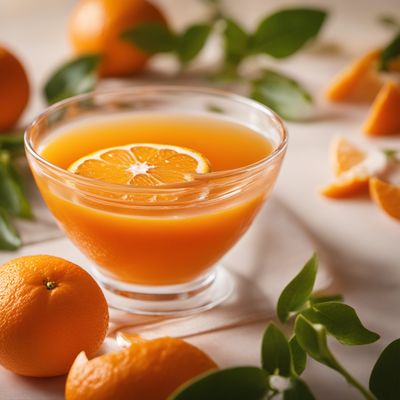
Nectar, orange
"The Citrus Elixir: Exploring the Vibrant World of Orange Nectar"

Nectar, apricot
The Golden Elixir: Unveiling the Delights of Apricot Nectar
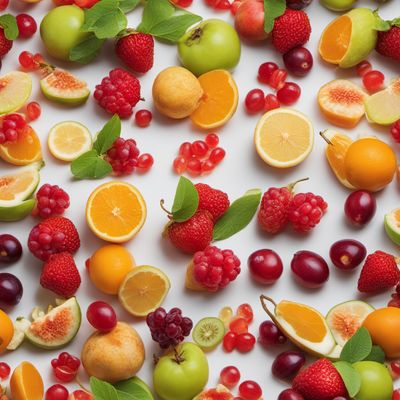
Mixed fruit nectars
A Symphony of Fruity Delights: Exploring Mixed Fruit Nectars
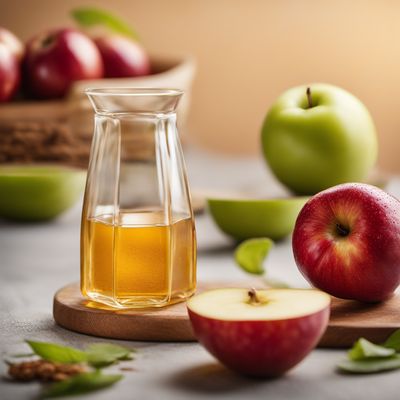
Nectar, apple
The Sweet Essence of Apple Nectar

Nectar, pear
The Sweet Symphony of Pear Nectar

Nectar, banana
The Golden Elixir of Bananas
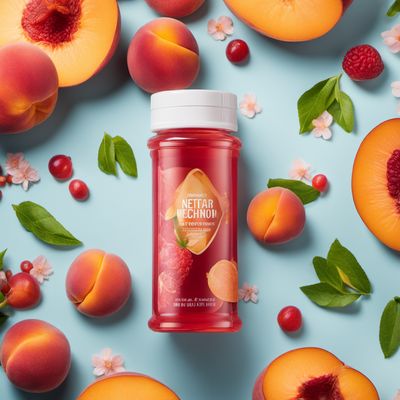
Nectar, peach
The Golden Elixir: Exploring the Sweetness of Peach Nectar